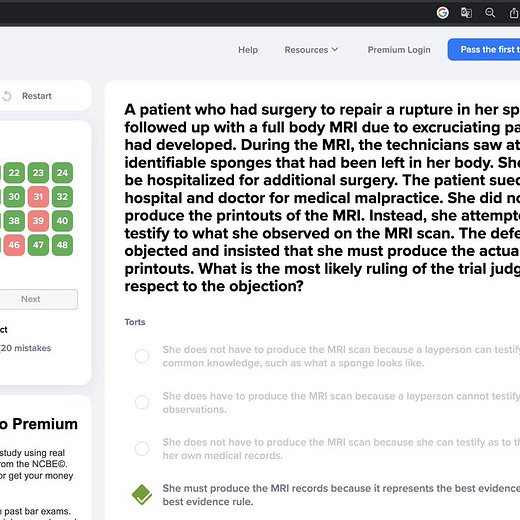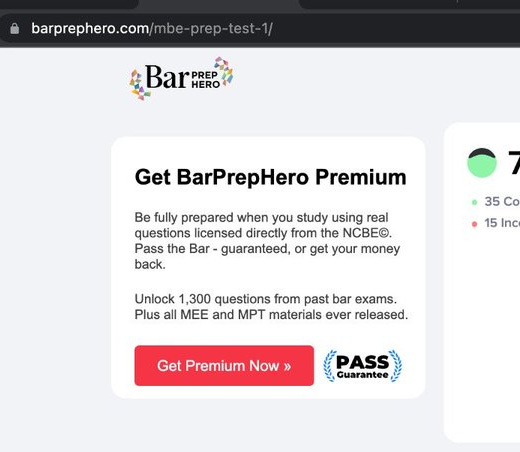What's New in Surgical AI: 12/12
Vol 5: We hope chatGPT can help make your practice better. Let's find out how.
We were comfortably wallowing in our post thanksgiving turkey hangover, gearing up for the December issue, when a new AI application release by OpenAI known as ChatGPT (aka GPT3.5 aka ‘MDMA for nerd brains’) sent thermonuclear shockwaves throughout the tech world.
Our feeds were dominated by the smartest nerds in Silicon Valley fanboy/girl-ing an AI’s chat output. Apple even started stocking extra O, M and G keys due to overuse. After a brief delay to set our affairs in order, we drank the ChatGPT Kool Aid.
If you’re well versed on chatGPT and the like, feel free to head to section 3, where we discuss how it might be applied in healthcare and in surgery.
Buckle up, this one is fun. And if you still want more, stay tuned: we expect to exit stealth mode in the next few days with an early demo of an AI application for MDs, by MDs (for our true fans only - hi mom and dad!)
Prelude:
Physicians are skeptics by nature and are steadfast in their ways, even if evidence points to the contrary (see: Things We Do for No Reason). It is unsurprising that articles pointing out the obvious barriers to implementing healthcare technology have already been written by physicians. Healthy skepticism is good, but we cannot complain that we: still using pagers, have bad EMRs, etc., despite simultaneously dismissing any true technological advancement as “hype” which will never manifest.
We (Dan and Dhiraj) are keenly aware of the limitations of this technology. We have published on it extensively and work in this space every day. We see the difficulty in implementing it successfully within a clinical workflow. The following is not meant to imply “AI will take over”, but to help you ask the question: “how can I use this to: save time? Be faster? Improve communication? Answer more questions?” … the list goes on.
With that out of the way, here we go!
Table of Contents
🏆 It’s Been One Week: What We Learned In Our First Week With ChatGPT
🚀 Ask Not What the AI Can Do For You, Ask What You And The AI Together Can Do For Your Patients
Enter: ChatGPT
Before we get started - a quick question:
For those of you too busy operating (nice), let us regale you with the story of the latest thermonuclear moment in AI hype.
ChatGPT is a conversational chat-assistant. You type. It responds. Currently free, I would expect that to change in the coming months. The fastest product to reach 1M users, crossing this milestone in just 5 days. By comparison, it took Facebook 6 months. Estimates of OpenAI spend are approaching >$10Mm / month, which is either insane (for a demo) or insanely cheap (since it now lives rent-free inside every nerd’s brain).
What can you ask it?
Anything.
Slow your (eye) roll, we have all seen this song and dance before: chatbots have been fairly good at regurgitating text from their training dataset, confidently repeating falsehoods (“2+2=5”, “Harvey Cushing was a second baseman for the Yankees”), and generating mediocre text for internet advertising campaigns (“Try Brawndo! It’s got electrolytes”). What has changed?
Answer:
It’s almost as good as a replacement-value human being at [almost] everything humans can put into words. No human being is actually at replacement-value in everything. Thus, ChatGPT plus human intelligence makes every human better.
And this is just the beginning.
It’s Been One Week … with ChatGPT, Here’s What We Learned
We’re believers in “show, not tell” here at Ctrl-Alt-Operate…
Here are some stats - how would you do on all these examinations? 📈
SAT Score: 1020 (reading> math, ridiculous but hey). How many “SAT-like” tests are there that it could meet/exceed…
Medical School Admissions essays:
We assess this as a top 50%ile essay (Dan’s grade), and with mild human editing or better prompting (more on that later), it could easily get to 90%ile.
IQ Test: 83
The Bar????
Here is us asking chatGPT to explain itself to a group of medical doctors.
Pretty good. It summarizes what large-language models are, introduces the topic of transformers without boring you, and even cites the correct seminal paper.
Lets get creative 🎨
Here I am asking it to rewrite our GPT explainer, but as a Seinfeld script.
…it even learns from its mistakes! Can’t have a Seinfeld episode w/o Kramer…
You can ask it to do just about anything, from writing essays, to poems, to meal plans, travel plans, write code, create surveys, and the list goes on. With surprising frequency, it actually just works. In fact, the biggest challenge with ChatGPT is underestimating what it can do.
🚀 Ask Not What the AI Can Do For You, Ask What You And The AI Together Can Do For Your Patients
Perhaps it’s early to go full JFK in this moment, but we don’t actually put people on the moon anymore so I went for it. This is *that* big (we think?)
Can you envision ways in which you + chatGPT are better than you alone?
This is the “centaur” model
The centaur model uses human intelligence to its fullest (strategy, creativity, direction), and uses machine capabilities to: streamline repetitive tasks, avoid stupid human errors, and create a minimally acceptable product for the human to improve.
Here are some ways you might think about incorporating chatGPT into a busy practice.
Disclaimer 2: Bear in mind, these responses won’t be perfect, and some may be flat out wrong. chatGPT also has a tendency to “hallucinate” and cite source which do not exist.
That being said, the only way we get better technologies is if we use the ones we have. So let’s see if we can find ways to make chatGPT work for you.
Streamlining
Think back to your physics days. How many tasks in medicine are done in ‘series’ (i.e. one after another) when they can be done in ‘parallel’? Any given patient may need multiple of the following: discharge summary, after-visit summary, note to referring provider, prior authorization…
… you get the picture. This is all based on the largely the same information - the patient’s history, current clinical condition, and your plan. GPT could help us streamline this. More on this soon 👀
Communicating
Patient communication gets sacrificed daily- clinics are double booked, OR time is limited, the list goes on. Ensuring patient’s understand what care is delivered often gets overlooked compared to simply delivering the care.
An extra 5 minutes explaining a care plan to a patient, times 20-30 patients in any given clinic…well that adds up.
What if it didn’t have to?
chatGPT can generate patient education information, written specifically for your care plan, in seconds. And within one minute, it can be reviewed and finalized by you and uploaded to the patient’s portal.
These models today come with all the disclaimers above. But they will get better. They will be trained on your style of communication. But only if you start to use them.
Research and Innovation
We’ve all heard the saying “perfect is the enemy of good” - perhaps no better application of the saying than chatGPT. Here it is, writing an abstract with zero context, in Dhiraj’s voice, about chatGPT.
Is it useable as is? Of course not. Is it a decent starting point which I can now use to accelerate my timeline? 100%. And that’s how you should think of it.
Here it is writing the code to analyze some dummy data. I imagine data-wrangling functions- cleaning, sorting, and processing data for statistical analysis, will be largely natural language driven. No more google searches on: “how to find all duplicates in Excel”. Just tell chatGPT what you want it to do, and it will do it (with comments so you can check its work!)
Perhaps the most exciting part for us, is the ability to write full code. Here we are asking it to build skeleton code for an app which improves how residents log surgical cases.
You can then even ask the steps to actually implement the code. Does this remove the need for computational expertise? Not at all. But computer scientists are expensive and their time is limited. Subject matter experts (surgeons) who can prototype their vision, lower the bar to take their ideas into real products.
There is no longer an excuse to not prototype.
We hope this gets you thinking. Thanks for reading.
Feeling inspired? Drop us a line and let us know what you liked.
Like all surgeons, we are always looking to get better. Send us your M&M style roastings or favorable Press-Gainey ratings by email at ctrl.alt.operate@gmail.com


















Thanks for the shout out / twitter mention!